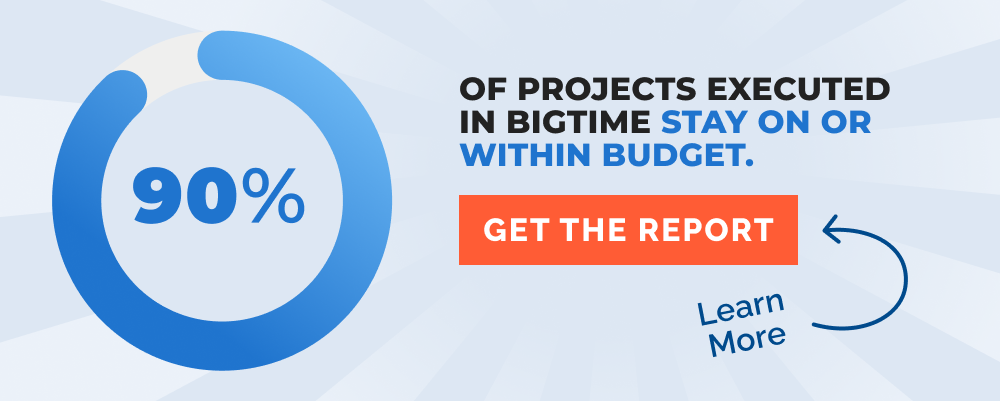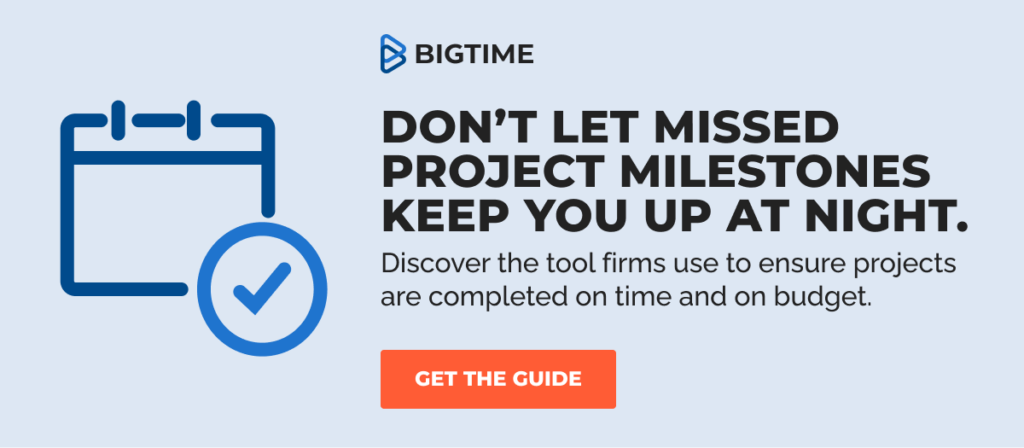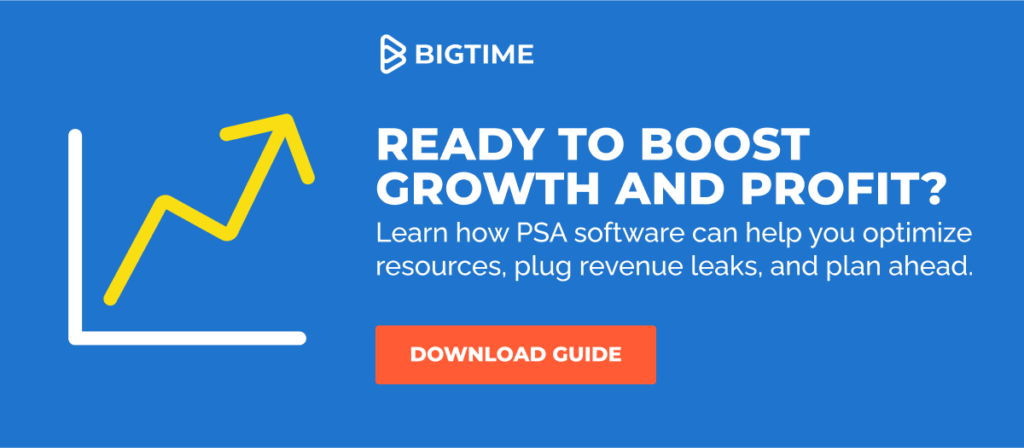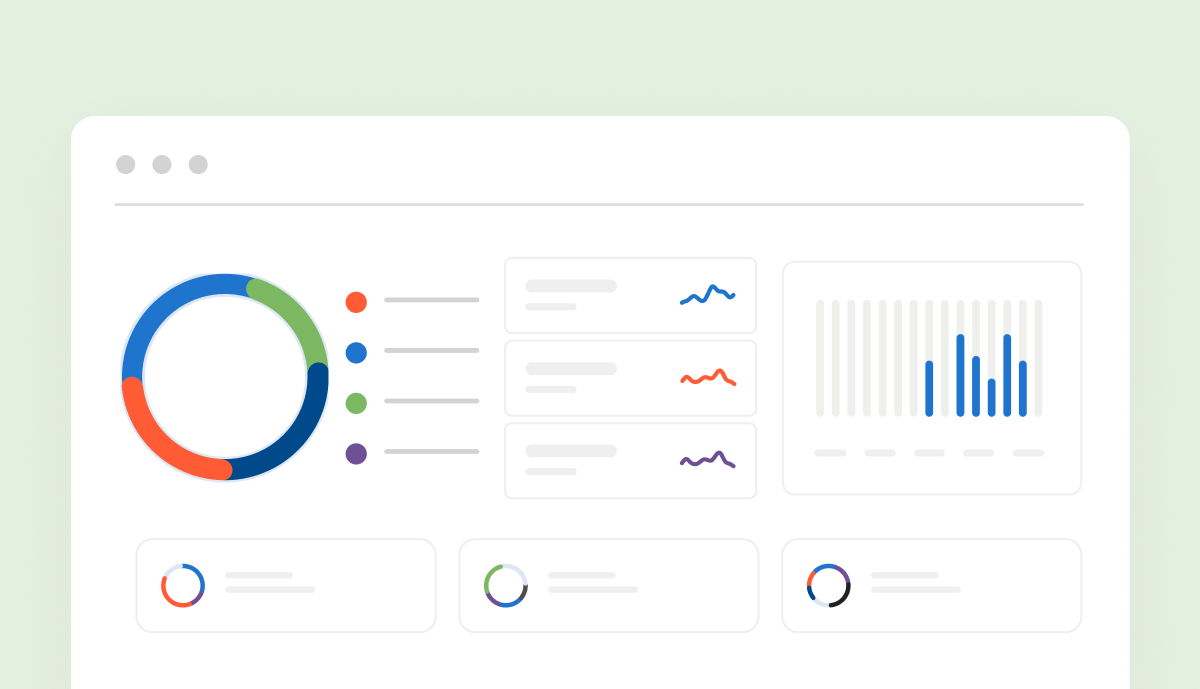Effective project management is crucial to the success of any professional services organization. However, managing projects can often be a daunting job, especially when dealing with multiple tasks, deadlines, and teams. This is where PSA software comes in.
In this article, we’ll be covering the benefits of PSA software, specifically when it comes to project management. Keep reading to learn how you can start improving your project management capabilities and stay profitable with the power of PSA software.
Old-School Project Management Methods Are Working Against You
Old-school project management methods like Excel spreadsheets, manual documentation, task boards, and email-centric communication, while once effective, are increasingly working against professional services firms.
As stated in SPI’s 2023 Benchmark Report, “While leading professional services organizations strive to achieve project margins over 40%, only 36% of the organizations surveyed consistently achieve project margins greater than 40%. These low project margins are caused by a variety of issues including poor estimates, scope change, lack of a clear project charter, poor project management, poor execution, and communication combined with not having enough or poorly prepared consultants.” All of these issues that lead to poor profitability are often unavoidable when using outdated project management methods.
Here are some key reasons why old-school project management methods are no longer suitable for professional services firms who want to stay profitable:
1. Siloed Communication
Traditional methods often rely on isolated communication channels, such as email and in-person meetings. This siloed approach makes it difficult to share critical project information in real time and hampers collaboration among team members.
2. Manual Documentation
Paper-based or spreadsheet-centric project documentation is time-consuming, error-prone, and lacks the accessibility needed for remote and mobile work, which has become increasingly common in the industry.
3. Lack of Real-Time Data
Old methods lack real-time data tracking and reporting capabilities, making it challenging to monitor project progress, resource allocation, and budget accurately.
4. Inflexible Project Planning
Fixed project plans with limited adaptability are less effective in an environment where client requirements and market conditions can change rapidly.
5. Inefficient Resource Allocation
Manual resource allocation can result in overburdened employees and underutilized resources, affecting project profitability and team morale.
6. Risk of Project Delays
Lack of automated scheduling and task dependencies can lead to project delays and increased costs.
7. Hindered Scalability
As professional services firms grow, old-school methods become less scalable and more challenging to manage across multiple projects and teams.
What is PSA Software?
PSA (Professional Services Automation) software is an all-in-one solution designed for, you guessed it, professional services businesses. PSA software offers tools for project management, time and expense tracking, resource management, billing, client management, and more. PSA software steps in to provide insight into project profitability and reduce operational stress, giving firms the power and confidence to succeed, no matter the scope.
Key Benefits of a PSA Solution
Increased Profitability
Accelerate business growth and profits by managing time, expenses, budgets, project status, and staff capacity more accurately. Access real-time data for immediate project budget insights and future projections.
Improved Workflows
Streamline internal processes from project creation to client invoicing while optimizing employee capacity.
Centralized Data
Gather valuable information from various systems into one hub for real-time insights, better decision-making, and future forecasting.

How PSA Software Keeps Your Projects Profitable in Every Phase
PSA software is a versatile and comprehensive solution that supports project management at every stage of the project lifecycle. Its features and capabilities streamline project planning, resource management, budget control, client collaboration, and performance analysis.
Below we outline how PSA software plays a role in keeping your budgets in check, scope creep limited, and clients happy.
1. Planning & Budgeting
- Resource Allocation and Optimization: Optimizes resource allocation by considering skills, availability, and project needs, ensuring efficient utilization. (Check out BigTime’s Skill Matching Feature)
- Budget Creation and Management: Facilitates budget creation and tracking, helping firms create realistic budgets and manage expenses effectively.
- Task Scheduling and Dependency Tracking: Provides tools for scheduling tasks and tracking dependencies, enabling better project planning.
- Milestone Setting: Creates set project milestones, providing clear objectives and progress markers.
- Risk Identification and Mitigation Planning: Aids in identifying potential risks and developing mitigation plans to minimize project disruptions.
2. Execution
- Task Assignment and Delegation: Supports efficient task assignment and delegation, ensuring that team members know their responsibilities.
- Real-Time Task Tracking: Provides real-time task tracking, allowing project managers to monitor progress and address delays promptly.
- Time and Expense Tracking: Simplifies time and expense tracking, making it easy for team members to record billable hours and project-related expenses accurately.
3. Monitoring and Controlling
- Real-time Project Progress Monitoring: Offers real-time visibility into project progress, enabling project managers to monitor project health continuously.
- Expense and Budget Tracking: Tracks expenses against budgets in real time, helping organizations maintain financial control and prevent budget overruns.
- Alerts for Project Deviations: Issues alerts and notifications when projects deviate from planned schedules or budgets, allowing for immediate corrective action.
- Issue and Risk Management: Assists in identifying, documenting, and managing project issues and risks, ensuring they are proactively addressed.
4. Closing
- Automated Invoicing and Billing: Automates invoicing processes, reducing manual effort and ensuring accurate and timely client billing.
- Post-Project Evaluation: Supports post-project evaluations by providing data and insights for assessing project success and areas for improvement.
- Performance Reporting and Analytics: Provides robust reporting and analytics tools, enabling organizations to analyze project performance and make data-driven decisions.
- Leveraging Successful Outcomes for Repeat Business: Helps organizations leverage successful project outcomes to foster repeat business and client referrals.

Is My Firm Ready for PSA Software?
Professional services firms typically start exploring PSA software when they enter a phase of business maturity characterized by growth and increased operational complexity.
Firms typically consider implementing PSA software to help with project management and its other smart capabilities when they need help with the following:
- Growth and scaling
- Resource allocation challenges
- Billing and invoicing complexities
- Client relationship management
- Profitability concerns
- Project portfolio management
- Compliance and reporting requirements
- Complex project structures
- Lack of data-driven insights
- Improved efficiency
The Results of PSA Software
Still not sure if you’re ready for PSA software? The effectiveness of this software often speaks for itself through tangible results and outcomes. Professional services firms that adopt PSA software experience a remarkable transformation in how they manage projects, resources, finances, and client relationships. But don’t take our word for it…

PSA & Project Management Software: What’s the Difference?
What sets PSA software apart from project management software? These two software categories frequently cause confusion due to their shared objective of improving business organization and increasing productivity. Where they differ is in the way they get this done and the resulting benefits.
PSA software is a comprehensive solution tailored for professional services firms, encompassing functions beyond project management such as resource allocation, time tracking, expense management, invoicing, and client relationship management. It serves as a central hub to optimize the entire business operation.
Project management software primarily focuses on the planning, execution, and monitoring of individual projects, offering tools for task management, timelines, and team collaboration.
While both serve critical roles, PSA software caters to organizations seeking holistic business management, while project management software targets project-specific needs.
Read our blog, PSA vs. Project Management Software to learn more about the difference between the 2 types of software and how to evaluate your existing needs to see which solution is the best fit for your firm.
How BigTime Software Boosts Project Profitability and More

BigTime takes the guesswork out of utilization, capacity planning, and project profitability. Our award-winning PSA software provides project planning, budgeting, time and expense tracking, and invoicing, all backed by real-time reporting and analytics. We help accountants, architects, engineers, IT services firms, and consultants budget, track, and bill their most important asset: time.

Frequently Asked Questions About Improving Project Management with PSA Software
How does PSA software help plan, track, and manage projects?
PSA (Professional Services Automation) software helps plan, track, and manage projects by offering tools for project creation, resource allocation, time tracking, expense management, client collaboration, and real-time insights, ensuring efficient project workflows and successful project outcomes.
Why use PSA software for project management?
PSA (Professional Services Automation) software is crucial for project management in professional services firms because it provides a centralized platform to streamline project planning, resource management, budget control, client collaboration, and performance analysis, ultimately enhancing efficiency, profitability, and client satisfaction while ensuring compliance with industry-specific standards and regulations.
What is the difference between project management and PSA software in project management?
Project management software primarily handles tasks related to individual projects, while PSA software offers a broader range of functions tailored for professional services firms, including project management as well as resource allocation, time tracking, expense management, client billing, and financial reporting.




